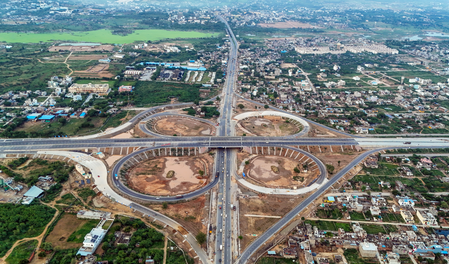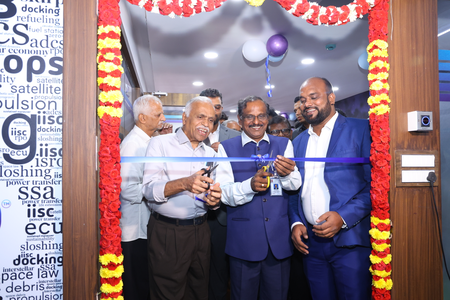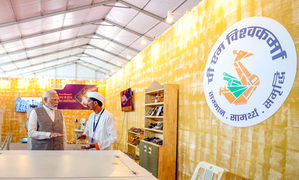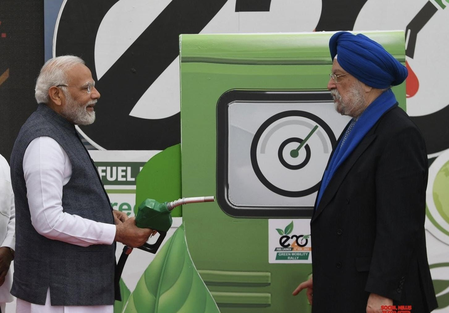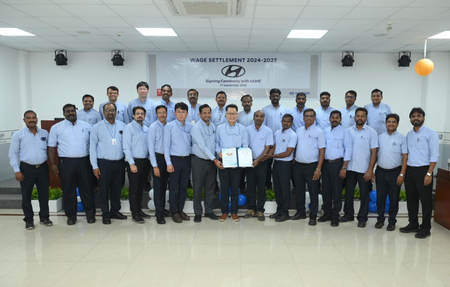
Chennai, Sep 17 (IANS) Hyundai Motor India on Wednesday informed that it has signed a wage settlement agreement with the United Union of Hyundai Employees (UUHE) for the period of 2024-2027.
As per the agreement, the revised all-inclusive compensation package sets a new benchmark in the automotive industry. The package includes an industry-best salary increase of Rs 31,000 per month, structured over three years in the ratio of 55, 25, and 20 per cent.
Youngmyung Park, Function Head – People Strategy, Hyundai Motor India Limited (HMIL), stated, “At Hyundai, our people are the cornerstone of our success. This agreement, built on mutual trust, respect, and constructive dialogue, reflects our shared commitment to fostering a progressive workplace culture that prioritises employee welfare and supports long-term organisational growth.”
The long-term wage settlement will be effective from April 1, 2024, through March 31, 2027.
“In addition to the salary increase agreed between the company and the union, HMIL continues to lead the industry in employee welfare, including best-in-class health coverage and advanced wellness programs,” the company said in a statement.
The announcement in India came amid wage-related unrest at Hyundai’s South Korean home base.
Earlier this month, in the US, as part of President Donald Trump’s crackdown on illegal migrants, officials raided a Hyundai-operated EV battery plant in Georgia.
Following this, they arrested approximately 475 people, primarily South Korean nationals.
The UUHE, which was founded in 2011, is the official representative organisation for HMIL employees.
UUHE’s continued dedication to promoting employee rights, welfare, and positive interactions with the firm’s management is demonstrated by the 1,981 employees it represents as of August 31, 2025, 90 per cent of whom are technicians or workers.
Meanwhile, Hyundai India shares ended the session in the green, surging 1.82 per cent or Rs 47.30 to settle at 2,650.40. In the last five sessions, the scrip rose nearly 6 per cent, and in a month, it jumped over 9 per cent.
–IANS
aps/rad

